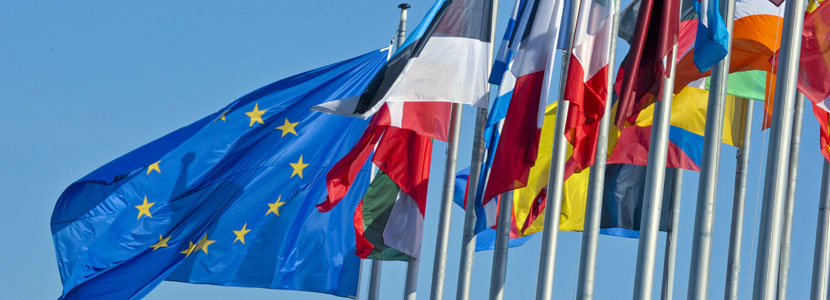Today’s Europe: United We Stand, Divided We Fall
David McAllister – The European Union faces major challenges. Too many citizens feel alienated from the EU institutions, populism is on the rise and the United Kingdom intends to leave our family of nations. The present crisis may well be the most serious challenge in 70 years of European integration. Yet, there remains considerable potential for positive change. We must seize this opportunity to redefine the EU’s identity, reform the European institutions and restore trust and hope among European citizens.
At the root of the current situation are the multiple internal, external and structural difficulties which the EU has witnessed in recent years: high unemployment rates and growing inequalities, a changing demography, terrorism, the migration crisis and the challenges of globalisation and technological change.
As history has taught us more than once, desperate citizens fall for easy answers. It is hardly surprising that more and more people feel overwhelmed in a world that is characterised by growing uncertainty.
The only way to counter this development is to reach out, engage in dialogue and explain the complicated and intricate processes of the world we live in. We must promote understanding of the EU and its institutions and communicate positively about its political and economic achievements and the numerous benefits it provides to each and every one of us.
Engaging in dialogue also means listening. We should address our citizens’ worries and concerns and make the EU institutions more transparent, effective and democratic. Not all issues can and should be solved at the EU level. Some issues are much better addressed at the national or local level. We ought to be ‘bigger on big things and smaller on small things’. This important principle must be kept in mind when reflecting on the future of the EU.
The European project was built against the backdrop of the bloodshed and destruction of World War II – to prevent future conflict based on radical nationalism by fostering progress, prosperity and cooperation among European nations. By delegating and sharing parts of their national sovereignty, Europeans emerged stronger as a result. This remains true today.
The remarkable aspect of the European Union is precisely that its member states and the European institutions are designed to complement rather than substitute one another. The member states’ different national identities and their cultural diversity enrich our European family. This is why they are recognised and protected.
The concept of mere national sovereignty propagated by Eurosceptics is often based on a nostalgic view of past ‘greatness’ and sovereignty. Yet, we should not forget how many times in the past, one country’s national greatness has come at the expense of other nations.
Nationalism proves anachronistic in an increasingly interconnected and globalised world in which one country’s well-being and success is directly linked to those of its partners.
Moreover, current demographic changes do not allow for isolationism. In 2060, each individual EU member state will account for less than one percent of the world population. To make our voice heard and act effectively, we need a strong and united Europe.
The ongoing debates on the path the EU should take in the coming years provide a unique chance for fundamental reform. We can seize this window of opportunity and make Europe fit for the 21st century. There is still enormous potential for positive change as evidenced in pro-European citizen engagement, the ‘Pulse of Europe’ movement or the recent Dutch and French elections, in which voters have sent a clear signal against hatred and populism.
We should embrace and define our European future, rather than reject it. We should come together and succeed together. In a world of uncertainty, unity is the best choice we can make. Divided we fall. United we stand.



